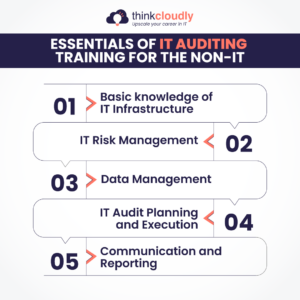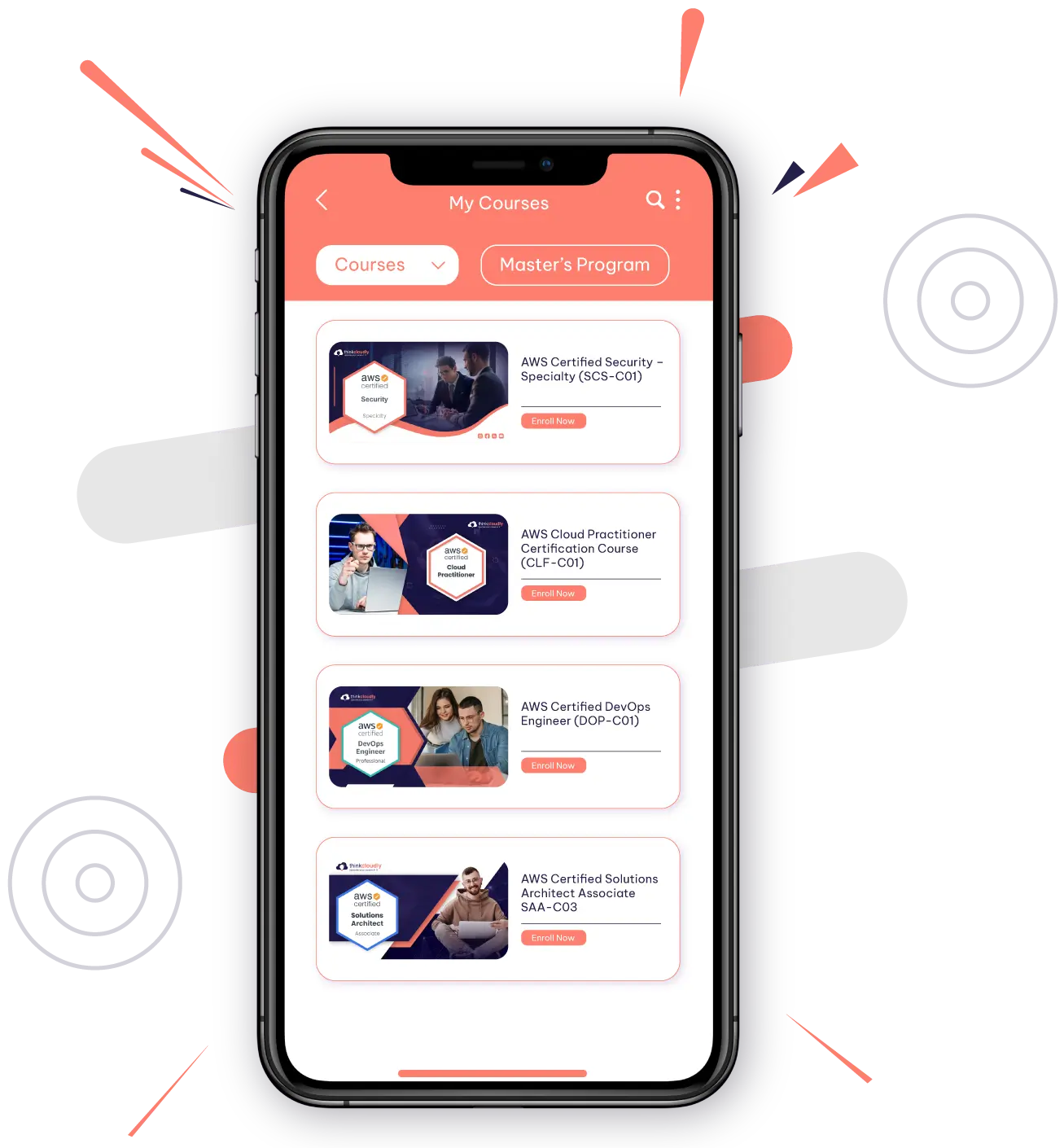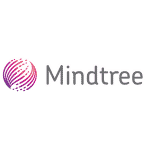Introduction
IT auditing is a rapidly growing category in the IT industry. It gave new hope to IT and non-IT professionals to have a great career with various job opportunities at high salaries. Due to various opportunities in IT audit, students studying IT or non-IT are moving towards IT audit. But if you are a beginner, then there are some important things about IT auditing for you. That can give you a direction on how to get started.
Essentials of IT Auditing training for the Non-IT
These are some essentials of IT auditing training for non-IT.
1) Basic knowledge of IT Infrastructure
- Understanding Scope: Understanding the fundamentals of IT infrastructure helps non-IT auditors understand the diversity of IT systems under audit.
- Assessing Risks: It is useful in detecting potential risks related to networks, software, and hardware.
- Control Interpretation: When a person is familiar with the IT infrastructure, it becomes easier to evaluate the controls put in place in the IT environment.
- Effective Communication: During audit functions, it helps IT and non-IT professionals communicate more clearly.
2) Understanding of IT Governance
- It provides insight into how IT aligns with business goals.
- Helps understand roles and responsibilities within IT structures.
- Ensures adherence to rules and regulations.
- Encourages the use of efficient risk management techniques.
- Helps in the creation of strong IT regulations and practices.

3) IT Risk Management
- Risk Identification: Non-IT auditors can detect potential risks to an organization’s assets and operations by being aware of IT threats.
- Risk Assessment: Non-IT professionals can assess the possibility and consequences of IT-related incidents by having a basic understanding of IT risk management.
- Risk Mitigation: Non-IT auditors may recommend and evaluate measures to mitigate identified IT risks and protect the organization’s data and assets.
- Compliance: Knowledge of IT risk management techniques reduces legal and financial risks by ensuring that audits comply with regulatory standards.
4) Security Fundamentals
- Knowing security principles guarantees auditors the ability to detect vulnerabilities and suggest appropriate solutions.
- When auditors are aware of prevalent cybersecurity threats, they are better equipped to evaluate risks and protect critical assets.
- Auditors are better able to assess the efficiency of security measures when they have information about encryption and access controls.
- The auditor’s proficiency with security policies guarantees their ability to evaluate compliance and suggest enhancements.
5) Data Management
- Risk Assessment: Data management policies affect data integrity and security, which are important for risk assessment in IT auditing.
- Compliance: Understanding data governance ensures compliance with regulatory standards like GDPR and CCPA during audits.
- Evidential integrity: Proper management of information ensures the accuracy and reliability of audit evidence, which is essential for drawing accurate conclusions.
- Business Continuity: Knowledge of data backup and recovery ensures that audits include continuity strategies, which safeguard business operations.
6) Understanding of Auditing Processes
- Foundation of Methodology: Mastering auditing processes provides a solid foundation for conducting systematic audits of IT systems, ensuring that assessments are accurate and consistent.
- Risk Mitigation: Understanding auditing processes enables non-IT professionals to successfully identify and handle risks while protecting corporate assets and data integrity.
- Compliance assurance: knowledge of auditing processes ensures regulatory compliance, minimizing legal and financial risks.
- Effective Communication: Mastery of auditing processes enables non-IT individuals to communicate audit results effectively and easily.
7) IT Audit Planning and Execution
- Strategic Alignment: An in-depth understanding of IT audit fundamentals guarantees alignment with business objectives and keeps the audit focused on critical areas.
- Risk Mitigation: Proper planning assists in identifying and prioritizing IT risks, directing audit efforts toward effective risk mitigation.
- Resource Optimization: Planning effectively guarantees the best possible resource allocation, thereby increasing the effectiveness and efficiency of IT audits.
- Compliance Assurance: When IT audit plans are effectively executed while ensuring compliance with industry standards and regulatory requirements, legal and compliance risks are reduced.
8) Audit Testing and Documentation
- Validation of Controls: By confirming that IT controls are working as expected, audit testing gives non-IT professionals confidence about the security and dependability of the system.
- Evidence Collection: Non-IT individuals can find areas for development and obtain evidence to support their understanding of IT processes through audit testing.
- Risk Mitigation: Detailed audit test documentation facilitates the successful identification and management of IT-related hazards by non-IT specialists.
- Compliance Assurance: When audit tests are properly documented to guarantee compliance with regulatory requirements, stakeholders are assured of compliance with industry norms and regulations.
9) Communication and Reporting
- Clarity: For non-technical stakeholders to understand the risks and implications, audit findings should be clearly explained.
- Decision Making: Clearly outlined reports help management make informed decisions about IT investments and risk mitigation strategies.
- Actionable Insights: The report should provide actionable information to resolve identified deficiencies and improve IT processes.
- Transparency: Transparent reporting increases trust and accountability between IT and non-IT stakeholders, thereby promoting collaboration and compliance.
Conclusion
Here we discussed the essentials of IT auditing training for non-IT. I hope you have read it carefully and cleared up all your doubts. If you are planning to make your career in the cloud and want to do an IT audit job, then this is the best option in all aspects of your career. This will give you a great career opportunity. If you want to know more about IT audits and IT audit interview questions, you can contact us, and we will help you.












No comment yet, add your voice below!